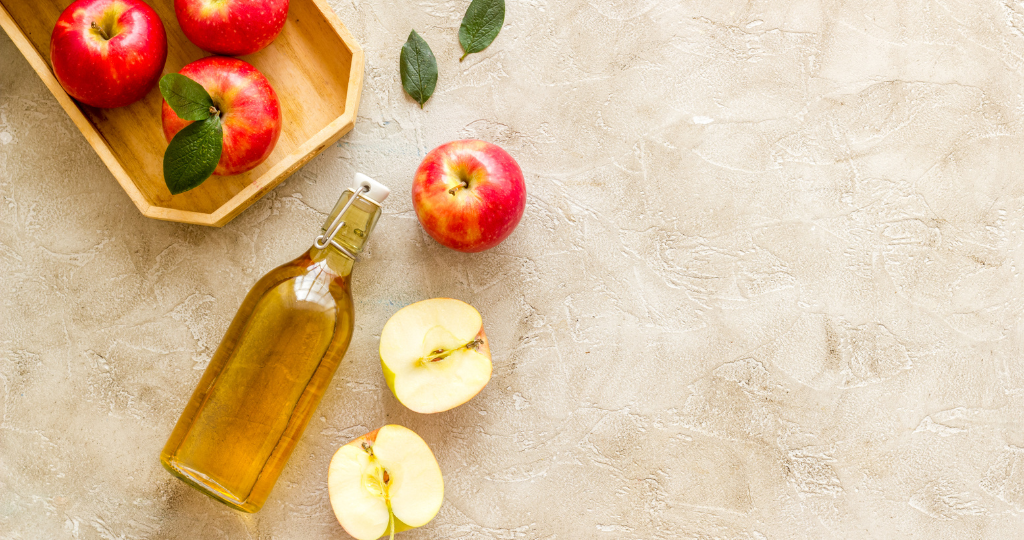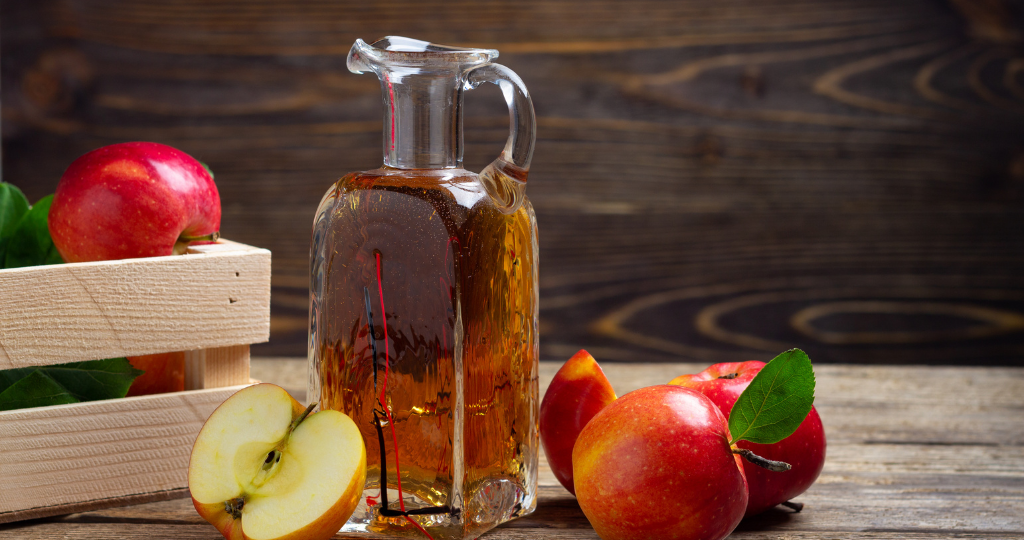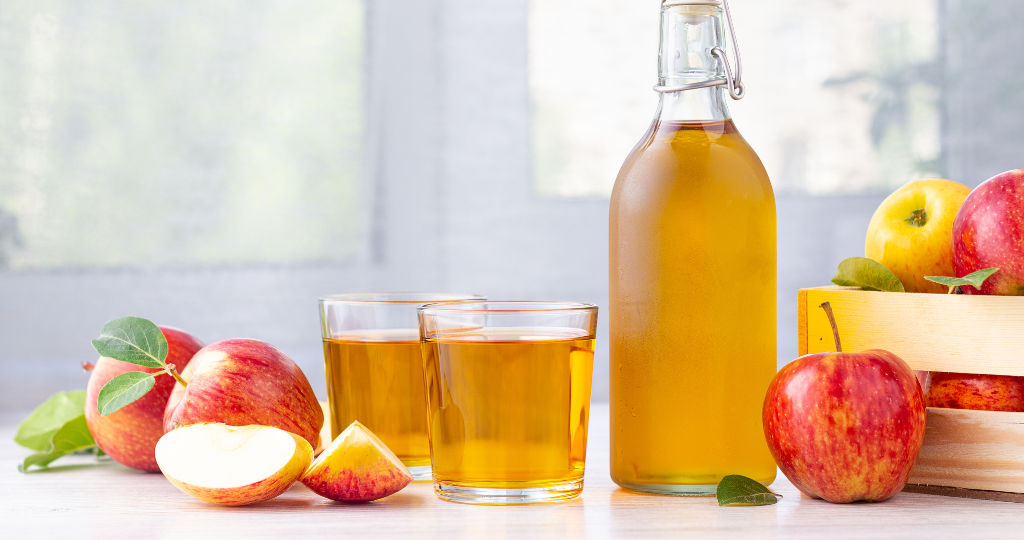
Apple Cider Vinegar vs. Rice Vinegar: Which One Should You Use & Why?
Vinegar is an incredibly versatile ingredient that adds a delightful tang to various dishes. But did you know there are many different varieties beyond the basic white vinegar? Two types have risen to prominence in recent years: apple cider vinegar and rice vinegar. These two dynamos pack severe flavour punch while offering unique health benefits. Let's explore the differences between apple cider vinegar vs rice vinegar.
Essence of raw apple cider vinegar
This tart liquid is made by fermenting the sugars in apple cider until it sours and develops that distinctive vinegary flavour. The fermentation process gives it a bold, acidic bite and creates strands of proteins, enzymes, and friendly bacteria known as "mother." Don't be alarmed - this murky, cobweb-like substance means the vinegar is raw, unprocessed, and packed with gut-friendly probiotics.
Unfiltered and unrefined apple cider vinegar tends to be cloudy, with a rustic cider flavour reminiscent of crisp apples. The colour ranges from deep amber to murky brown. Many loyal fans believe the murkiness is a sign of the vinegar's quality and nutritional potency.
Read all:
Nutrition value of apple cider vinegar
Vinegar isn't precisely a nutritional powerhouse. After all, it's just acetic acid and water. However, apple cider vinegar does contain a few nutrients that give it a slight edge over other vinegar. These are the nutritional value of apple cider vinegar for 100 gms-
|
Nutrient |
Value |
|
Sodium |
5 mg |
|
Potassium |
73 mg |
|
Total Carbohydrate |
0.9 mg |
|
Sugar |
0.4 g |
Benefits of apple cider vinegar
This trending tonic has been credited with various health-promoting properties, from aiding weight loss to lowering blood sugar levels. Here are some of the science-backed benefits:
- Weight loss aid: The acetic acid may help suppress appetite and burn fat, making apple cider vinegar a useful addition to a calorie-controlled diet. Early research indicates rice vinegar may improve insulin sensitivity and help prevent blood sugar spikes, similar to apple cider vinegar.
- Blood sugar control: Numerous studies show it can improve insulin sensitivity and help control blood sugar spikes after meals, especially when combined with a balanced diet. The acetic acid gives rice vinegar some ability to inhibit the growth of harmful bacteria like E.coli and S. aureus.
- Antimicrobial properties: The vinegar can inhibit the growth of harmful bacteria like E.coli. Some people even use diluted ACV as a natural household cleaner. In animal studies, compounds in brown rice vinegar have been shown to help reduce inflammation markers.
- Skin toner: The astringent nature of apple cider vinegar makes it a popular remedy for fighting acne and leaving skin with a beautiful glow. Some people use small amounts of rice vinegar to help relieve bloating, indigestion, and even constipation, though research is limited.
Rice vinegar in Asian culinary traditions
While apple cider vinegar hails from the West, rice vinegar originates from Asia and has been used for thousands of years. As the name implies, it's made from fermented rice or rice wine. Different varieties come from different rice sources - red and black rice vinegars exist, too.
Rice vinegar has a mild, sweet flavour without a harsh, acidic bite. The taste is pretty mellow compared to other vinegars, almost delicate. It also lacks any real aroma besides a faint whiff of fermentation.
Many Asian cuisines rely heavily on rice vinegar to add a gentle tang to sauces, marinades, pickles, and more. It's essential in sushi rice, sauces like teriyaki, and those delightfully sinus-clearing vinegar drinks. The flavour lends itself beautifully to balancing rich, umami notes.
Nutrition value of rice vinegar
Like apple cider vinegar, rice vinegar's nutritional value comes from its acetic acid and antioxidant contents. Here is the nutritional value for 100 ml rice vinegar:
|
Nutrient |
Amount |
|
Energy |
200 kcal |
|
Carbohydrate, by difference |
53.3 g |
|
Total Sugars |
53.3 g |
|
Sodium, Na |
4730 mg |
|
Fibre |
Less than 1 g |
Benefits of rice vinegar
While not as celebrated as apple cider vinegar, this humble Asian staple still has some potential health-promoting properties worth exploring:
- Blood sugar control: Early research indicates rice vinegar may improve insulin sensitivity and help prevent blood sugar spikes, similar to apple cider vinegar. The impact could make it a useful supplemental remedy for prediabetics and type 2 diabetics looking to regulate glucose better.
- Antimicrobial effects: The acetic acid gives rice vinegar some ability to inhibit the growth of harmful bacteria like E.coli and S. aureus. As a natural cleansing additive, it can boost immunity for those vulnerable to infections either internally when consumed or externally on the skin.
- Anti-inflammatory properties: In animal studies, compounds in brown rice vinegar have been shown to help reduce inflammation markers. This demonstrates the potential to provide symptom relief from autoimmune and gastrointestinal conditions tied to tissue swelling and damage.
- Digestive support: Some people use small amounts of rice vinegar to help relieve bloating, indigestion, and even constipation, though research is limited. It likely assists through probiotic proliferation and pH regulation similar to other fermented foods and vinegars that ease digestion.
Apple cider vinegar vs rice vinegar - How they are different
Here is the basis of the difference between apple cider vinegar vs rice vinegar:
|
Category |
Apple Cider Vinegar |
Rice Vinegar |
|
Culinary Uses |
Zesty marinades, Bright salad dressings and Pickling (veggies to eggs) |
Essential for sushi rice, Sweet and sour dipping sauces |
|
Flavour Profile |
Intensely sour and tart |
Mild, slightly sweet tanginess |
|
Colour |
Deep amber to brown |
Pale yellow to reddish-brown |
|
Acidity |
High (5-6%) |
Gentle |
|
Aroma |
Strong and punchy |
Faint, almost non-existent |
Detailed information on ACV and rice vinegar
1. Culinary uses
When it comes to cooking applications, apple cider vinegar and rice vinegar each shine in their own unique culinary realms. Apple cider vinegar is amazing for hearty, robustly flavoured dishes like marinades, pickles, salad dressings, and beverages. Its bold tang can help brighten and balance rich, fatty ingredients.
Rice vinegar, on the other hand, is better suited for more delicate Asian cuisine. It provides a gentle tang for dipping sauces, sushi rice, stir-fries, and those oh-so-refreshing Asian vinegar drinks. The mild flavour allows other ingredients to be the star.
2. Flavour profile
These two kinds of vinegar sit on opposite ends of the flavour spectrum. Apple cider vinegar is a full-on pucker-packed punch to the tastebuds. The tartness is unmistakable with those prominent apple undertones. Some people love the intensity, while others find it overpowering.
Rice vinegar, in contrast, has a delicate and slightly sweet flavour. You get that classic vinegar tang in a much softer, more subdued form. The taste is nuanced and never overshadows the other components of a dish.
3. Colour
Just by looking at them in the bottle, you can already see one obvious difference: apple cider vinegar is deep amber to brown in colour, while rice vinegar is pale yellow to reddish-brown. The dark hue of apple cider vinegar comes from the apple cider it's fermented from.
However, the colour of rice vinegar depends on the specific rice it's made from. Brown rice vinegar is reddish-brown, while white rice versions are practically clear. The presence of "mother" in unfiltered apple cider vinegar also contributes to its murky appearance.
4. Acidity
For those who appreciate a seriously pungent acidity, reach for the apple cider vinegar. With an acetic acid level of around 5-6%, it packs that intense sourness you may love or hate. The higher the acidity, the more antimicrobial potency it has.
Rice vinegar is definitely milder in the acid department, typically containing around 4% acidity. While still packing a tang, it's not quite as lip-puckeringly sour as apple cider vinegar. The softer acidity suits delicate Asian flavours beautifully.
Also, do check:
Conclusion
Apple cider vinegar is the bolder, more robustly flavoured choice perfect for adventures into Western cuisine and unique tonics. Rice vinegar takes a gentler, more refined approach ideal for delicate Asian dishes.
Ultimately, the "best" vinegar comes from personal taste preference and culinary application. Why not keep both in your pantry to experience the irresistible tanginess each one brings? No matter which you choose, you'll add a delightful flavour punch.






